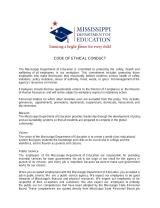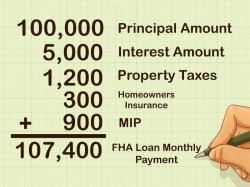How to owner Finance a property?
Owner financing a property involves a real estate transaction where the seller (property owner) provides financing to the buyer, allowing the buyer to purchase the property without obtaining a traditional mortgage from a bank or lender. This arrangement can be beneficial for both buyers who may have difficulty securing a conventional loan and sellers who want to sell their property quickly. Here's a comprehensive guide on how to owner finance a property:
For Sellers:
Evaluate the Property: Determine the fair market value of your property through a professional appraisal or by researching recent comparable sales in the area. This will help you set an appropriate sale price.
Set Financing Terms:
- Decide on the financing terms, including the down payment, interest rate, loan term, and any balloon payments (if applicable).
- Consider consulting with a real estate attorney or financial advisor to ensure your terms comply with local regulations and market standards.
Screen Potential Buyers:
- Carefully evaluate potential buyers, including their creditworthiness and financial stability. Request financial documents, such as credit reports, income statements, and bank statements, to assess their ability to make payments.
Create an Owner Financing Agreement:
- Draft a detailed owner financing agreement or contract with the assistance of a real estate attorney. Include all the terms and conditions of the financing arrangement, as well as default provisions and remedies.
Offer the Property:
- Market the property as available for owner financing in real estate listings and advertising materials. Be transparent about the financing terms to attract qualified buyers.
Negotiate and Close the Deal:
- Negotiate with potential buyers and reach an agreement on the sale price and financing terms.
- Ensure the buyer understands the terms and obligations of the owner financing arrangement.
- Close the sale with the assistance of a real estate attorney or a title company. This involves transferring the property title to the buyer and recording the financing agreement.
Receive Payments:
- Collect monthly payments from the buyer according to the agreed-upon schedule.
- Keep accurate records of all payments received and provide receipts to the buyer.
Handle Default Scenarios:
- Establish a process for addressing defaults, such as missed payments or breaches of the agreement.
- Clearly outline remedies and consequences for defaults in the owner financing agreement.
For Buyers:
Identify Owner-Financed Properties:
- Look for properties listed as available for owner financing in real estate listings, online marketplaces, or through real estate agents.
Assess the Property:
- Evaluate the property's condition, location, and suitability for your needs.
- Conduct a home inspection to identify any potential issues.
Negotiate the Terms:
- Negotiate the sale price and financing terms with the seller.
- Review the owner financing agreement carefully to ensure you understand the terms and obligations.
Conduct Due Diligence:
- Complete due diligence by obtaining necessary inspections, appraisals, and any required financing contingencies.
Secure Financing:
- Gather financial documentation to demonstrate your ability to make payments, including credit reports, income verification, and bank statements.
Close the Deal:
- Work with a real estate attorney or title company to facilitate the closing process.
- Sign the owner financing agreement and any other required documents.
Make Monthly Payments:
- Make monthly payments to the seller according to the agreed-upon schedule.
- Keep records of all payments made.
Comply with the Agreement:
- Ensure you adhere to all the terms and conditions outlined in the owner financing agreement to avoid default.
Owner financing can be a viable option for both buyers and sellers, but it's essential to approach the transaction with care and seek professional guidance when necessary. Consult with a real estate attorney, financial advisor, or real estate agent to navigate the process smoothly and protect your interests.













